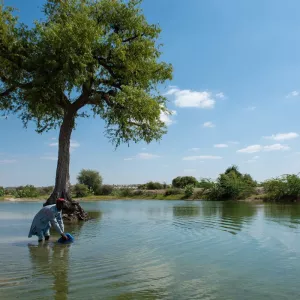Pakistan Water Week 2021
The Ministry of Science and Technology, through the Pakistan Council of Research in Water Resources (PCRWR), in collaboration with International Water Management Institute (IWMI) Pakistan and the CGIAR Research Program on Water, Land and Ecosystems (WLE), is jointly organizing the Pakistan Water Week 2021 International Conference. The conference will take place in Islamabad, Pakistan from 6 – 9 December, under

Pakistan Water Week 2021
The Ministry of Science and Technology, through the Pakistan Council of Research in Water Resources (PCRWR), in collaboration with International Water Management Institute (IWMI) Pakistan and the CGIAR Research Program on Water, Land and Ecosystems (WLE), is jointly organizing the Pakistan Water Week 2021 International Conference. The conference will take place in Islamabad, Pakistan from 6 – 9 December, under the theme ‘Needs for Sustainable Water Management in a Climate Crisis for Indus Basin.’
In 1980, Pakistan had a relatively abundant supply of water. In 2000, Pakistan had become water-stressed. By 2035, Pakistan is predicted to have become water scarce. Climate change and COVID-19 have only exacerbated the problems facing Pakistan and its use of water.
This is the first-ever event of its kind in Pakistan, and aims to bring together academics, government officials, NGOs, and policy experts from home and abroad to discuss the problems facing the country today. Some of these issues are the lack of data, over-extraction and depletion of groundwater resources, and disparate policies in the various sectors of water, food security and climate change…
Photo credit: Usman Ghani

